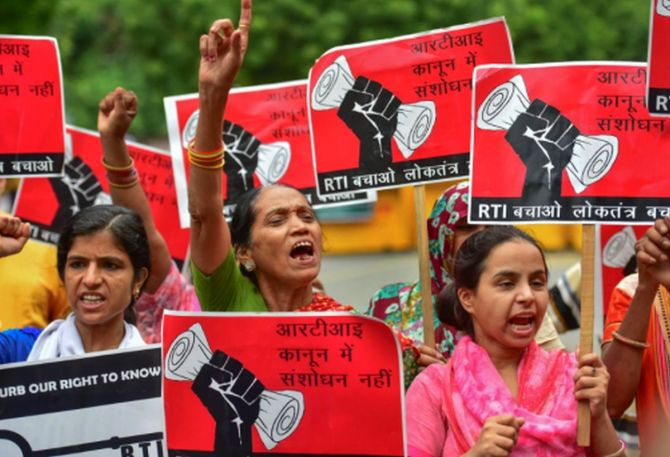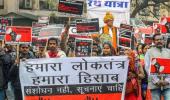Non-citizens are not barred from seeking information from public authorities under the Right to Information Act and it will be inherently contradictory to hold that such a right is available only to the citizens, the Delhi high court has said.

The court stated that creating an absolute bar on the disclosure of information to non-citizens would be contrary to the purpose and object of the RTI Act itself, and the same cannot be read into the legislation.
RTI Act places enormous emphasis on access to information which could relate to the life or liberty of a person, the court observed.
It added that preventing access to information to non-citizens -- on whom the Indian Constitution confers a "smaller bouquet of rights" -- would also be contrary to the constitutional principles.
"Considering that the RTI Act also accords information relating to life or liberty an important and distinct position, it would be inherently contradictory to hold that only citizens are entitled to the Right to Information. Life or liberty could also relate to non-citizens including foreigners, NRIs, OCI card holders and such other persons," said Justice Prathiba M Singh in a recent order.
"In the case of such public authorities dealing with issues concerning non-citizens, if there is an inaction or lack of transparency in their dealings, it cannot be held that such a non-citizen would be disabled from seeking the said information under the RTI Act," the judge asserted.
The court said whether the information sought by a non-citizen deserves to be disclosed has to be left to the discretion of the authority concerned who would decide the same based on the facts, situation and the surrounding circumstances.
In the present case, a Tibetan national had sought certain information from Central Tibetan Schools Administration. He had also claimed that he was entitled to be treated as an Indian citizen under the Citizenship Act.
The chief information commissioner, while ruling in favour of the RTI applicant, had imposed a penalty on the petitioner -- the public information officer of the body who had refused to provide the information on the ground that he was a Tibetan national and thus would not be entitled to invoke the provisions of the RTI Act.
In the order, the court noted that the RTI Act used the words "citizen" and "person" and CIC was right in holding that there is no absolute prohibition if the authority deems it fit to disclose the information.
"Public authorities as defined in the RTI Act, in India, deal with citizens and non-citizens. While as a general proposition, it would be correct to hold that the right to information is conferred upon all citizens, it cannot also be held that there is an absolute prohibition on disclosure of information to non-citizens," the court said.
"This court is of the opinion that the Right to Information ought to be available to citizens and non-citizens depending upon the kind of information which is sought and the recognition of the rights guaranteed to such class of persons under the Constitution of India," it added.
The court said the safeguards/exceptions provided in the RTI Act would apply with respect to any information which is sought by either citizens or non-citizens.
It stated that the PIO's approach of assuming that a non-citizen would not be entitled to information under the RTI Act cannot be held to be malicious and set aside the penalty amount of Rs 25,000 imposed by the CIC.
The court added that the PIO is bound by the order of the CIC and has to thus supply the information to the applicant.










